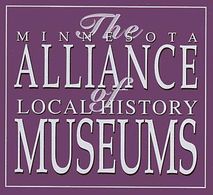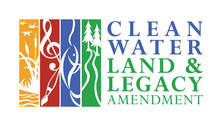|
Applications will be accepted until 11:59pm on November 15, 2023.
Complete session proposal guidelines and instructions are available above. Submit proposals via online form or fillable PDF. A copy of your proposal will be sent following online submission. Fillable PDF forms need to be emailed to: [email protected] |
CONFERENCE DETAILS
The 2024 Annual Meeting & Conference will take place at the Duluth Entertainment Convention Center in Duluth, MN. Conference sessions, as submitted through this process, will be held on Wednesday, April 24 and Thursday, April 25. All conference presenters will receive early bird discount rate regardless of registration date. CALL FOR SESSION PROPOSALS Session proposals are accepted until 11:59 pm on November 15, 2023. Proposals must come from those wishing to present on the subject matter and all panelist participation should be confirmed at the time of submission. CONFERENCE AUDIENCE This event is designed for but not limited to history museum volunteers, paid staff, board members, and history students. Topics in the conference schedule are expected to address a broad range of work typically found in small to mid-sized local history organizations (navigating a global pandemic, operating a museum, archives, historic site or house, etc.) as well as individuals who perform various roles within an organization. SESSION FORMATS
SESSION IDEAS Following the 2023 conference, attendees were asked to share some of their most pressing training needs. Here are session ideas as you begin brainstorming. General
Collections & Exhibits
Education & Outreach
Organizational Leadership & Development
Social Media & Marketing
Historic Preservation & Building Maintenance
|
Minnesota Alliance of Local History Museums: Peers Helping Peers Since 1991
|
General contact:
Liz Koele, Alliance Coordinator [email protected] 75 W 5th St #400 St Paul, MN 55102 612-500-7460 |
© COPYRIGHT 2023. ALL RIGHTS RESERVED.
This project has been financed in part with funds provided by the State of Minnesota from the Arts and Cultural Heritage Fund through the Minnesota Historical Society.
|


